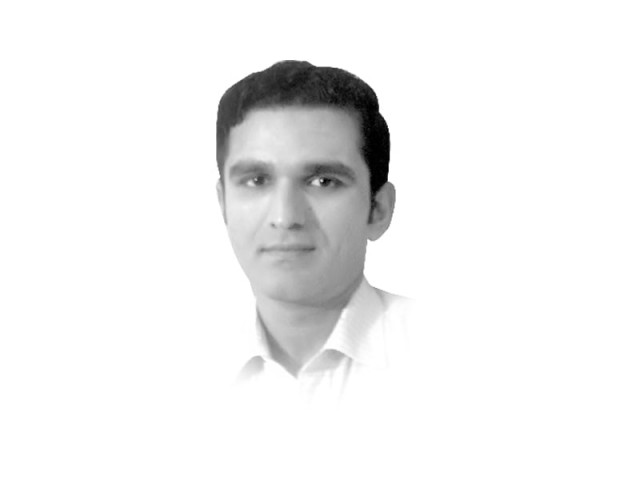Call for a ‘Thinking Pakistan’
Our students are taught not to question the teacher or the textbook and to just regurgitate material.

The writer is the Chairperson of the History Department at Forman Christian College, Lahore
I have been teaching in Pakistan for just about a year and a half and during this time, have had an opportunity to interact with a wide variety of students. The few hundred students I have taught have come from every province and territory of Pakistan, almost every social and economic background and, at least, half of them hail from rural backgrounds. What has been patently clear from this cross section of students is that our educational system is geared towards the discouragement of abstract thinking. Our students are taught not to question the teacher or the textbook and to just regurgitate material — no processing and thinking is involved. So, the students are very shocked when I say that they are not supposed to write my opinion and have to come up with their own ideas supported by evidence. They also get confused when I simply say, “I don’t know” in answer to a question, since a teacher in Pakistan is always supposed to know everything, no matter if they are even making it up. Similarly, when asked why students would want to study history, I still get, “I want to learn objective and unbiased history”, and often I get very quizzical looks when I have to burst their bubble and tell them that there is no such thing as “unbiased” and “objective” history. All these fallacies exist in Pakistan because “thinking” is never nurtured. One of the most important distinguishing aspects of the early Homo sapiens was their ability of abstract thinking; unfortunately, this is the very ability we are trying to retard in Pakistan.
As mentioned in my article last week, my paper was the only slightly philosophical paper I came across at the Judicial Conference. This, coupled with the fact that there were very few academics present at the conference, again reinforces the point that even in law, there is no real promotion of “thinking.” Law as a discipline or as a practice cannot flourish unless there are legal philosophers who can develop theory, think of new ways of interpretation, argue for different aspects of fundamental rights, etc. In a recent conversation with an eminent lawyer about the judicial history of Pakistan, it became even clearer that except for the first couple of decades, most judges have increasingly become unable to theorise, and hence, major judgments at times have not even been coherent.
Pakistan has an inherent dearth of thinkers. At Partition, a large number of Muslim thinkers remained in India, such as Abul Kalam Azad and Zakir Hussain, while in Pakistan, the coterie of thinkers was limited to Maulana Maududi and a very few others. Hence, while Iqbal is eulogised in Pakistan greatly, philosophy departments in the country are mostly collecting dust and not producing scholars. The very few scholars who do come up, like Eqbal Ahmad and Fazul Rahman, are quickly hounded so that they relocate out of Pakistan. This lack of thinking is also related to the fact that freedom of conscience is not guaranteed as a right in the Constitution of Pakistan. Thinking freely and following your conscience in all matters are important, related matters.
It has been pointed out by several people that while rulers in the Indian subcontinent were busy making tombs, rulers in the West were establishing universities. Most of the colleges of Oxford and Cambridge are in people’s memories, and even though their tombs are rather simple, their colleges today are well endowed. The difference is so much that today, we cannot even claim the ruins of a medieval madrassa or academy in Pakistan — there were simply very few of those in South Asian history and their dearth is making its mark even now.
In this election, almost all major political parties have vowed to raise education spending to at least five per cent of GDP. Cautiously, I am taking this as an optimistic sign (even though none of the parties has articulated actually how this will be achieved), but in this era of hopes and promises, let me implore the parties to please make “thinking” a central element of their education strategies. Tombs are nice but they house mortal remains; we should focus more on immortal words and ideas.
Published in The Express Tribune, April 30th, 2013.















COMMENTS
Comments are moderated and generally will be posted if they are on-topic and not abusive.
For more information, please see our Comments FAQ